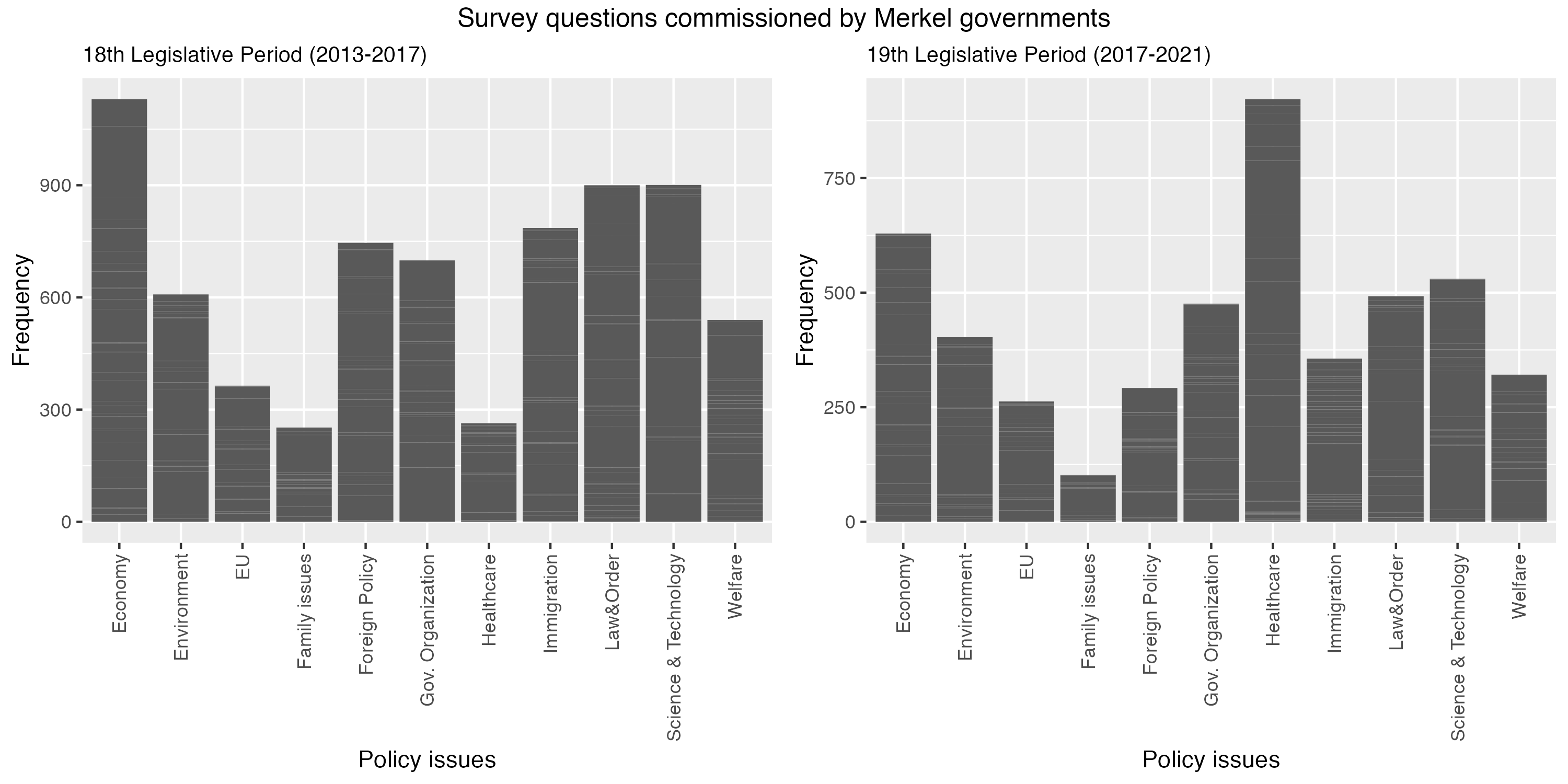How do governments mobilise public opinion in times of uncertainty? Do they gauche public opinion systematically across policy domains or unevenly depending on the issue ? In a new article in the Journal of European Public Policy, Anja Durovic & myself analyse how the character of the policy domain to which an issue belongs affects its likelihood of being included in government polls.
We do so by presenting empirical evidence from Germany, mobilising an original database of all poll questions directly commissioned by the German federal government during the 18th and 19th legislative periods (2013-2021).
One year ago, we published an EJPR article on the factors that determine the intensity of government polling at different points in the electoral cycle. This time, we focus on the more qualitative aspects of government polling (i.e. what kind of policy issues are selected & why).
Our research reveals three important patterns in how governments decide what to poll about.
First, governments prefer to ask questions about issues they actually control. The German federal government is much more likely to commission surveys on topics under their jurisdiction rather than issues handled primarily by state governments.
This changes when an issue becomes a major public concern. During crises or when specific topics dominate public debate, the federal government suddenly starts polling much more about issues outside their direct control, particularly those involving shared responsibilities with state governments.
The third pattern encompasses financial and policy-related elements. Governments clearly prefer polling on regulatory policy issues (ie. setting standards & rules) rather than on redistributive issues that require significant government spending.
However, when redistributive issues become a major public concern, governments are more likely to survey public opinion about them despite the financial implications.
All in all, our results show that while motivations to ask questions about a particular issue are shaped by constraints (institutional, financial and political) on the government’s ability to act in this area, incentives related to the salience of the issue can shift the focus of government polls to issues where they have less room for manoeuvre.
Ultimately, this new piece of research highlights once again that governments are not only consumers of public opinion data, but also active participants in its creation by commissioning their own quantitative or qualitative public opinion studies.
Our article is published within the special issue “Policymaking in Times of Crises” edited by Frank Baumgartner & Laura Chaqués Bonafont.
